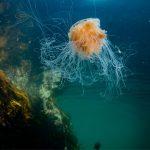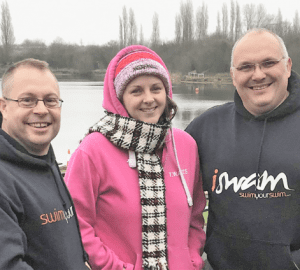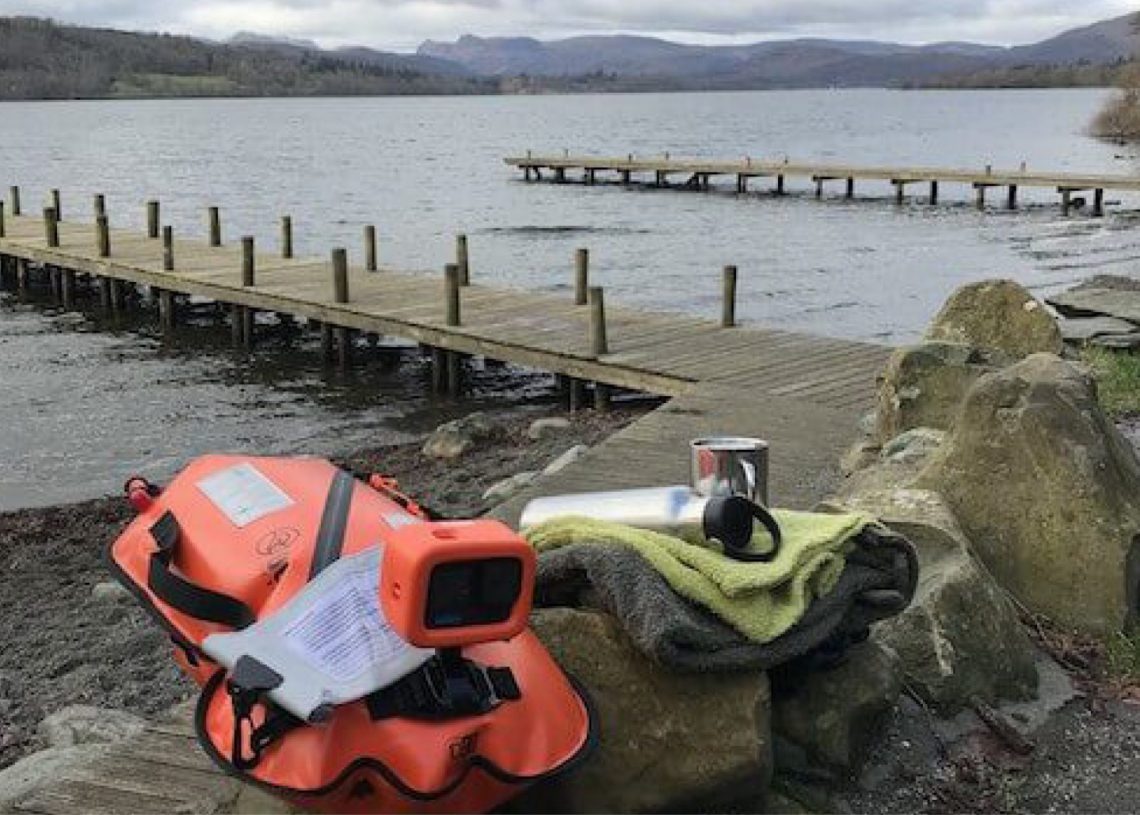
Call for ‘swim-along’ interviews in Windermere
PhD researcher calls for ‘swim-along’ interview participants at Windermere to examine the relationships between open water swimming and environmental health in this Lake District body of water.
PhD researcher Taylor Butler-Eldridge is calling for ‘swim-along’ interview participants to help with his research project, Swimdermere. The project questions the relationships between open-water swimming (OWS) and environmental health at Windermere, including the different bodily, socio-cultural, political, and environmental factors that shape these relational experiences of ‘healthy’ OWS practice.
The fieldwork is situated at two popular designated bathing sites – Rayrigg Meadow and Millerground – between September 2022 and September 2023. Part of the research includes one-to-one ‘swim-along interviews’ with swimmers and dippers, including questions before, during, and after being in the water. Interviews have been running since September 2022, but Taylor is seeking more people to work with.
The research is funded by the Economic and Social Research Council, South West Doctoral Training Partnership, and the University of Exeter (Human Geography). The findings will be used for Taylor’s PhD thesis, alongside future academic publications, conference papers and teaching material. It also aims to encourage broader public engagement with existing (and potential) communities invested in Windermere, including an interactive swim-safety guide on the project website.
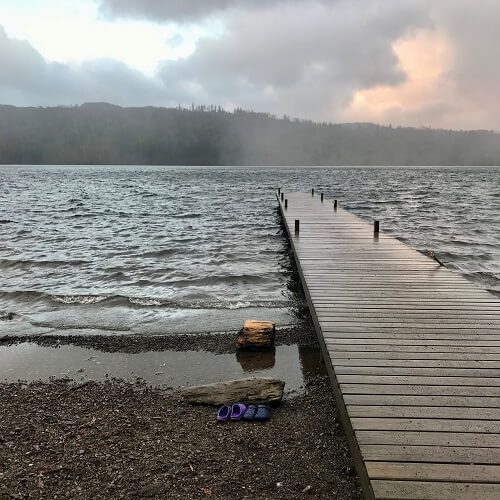
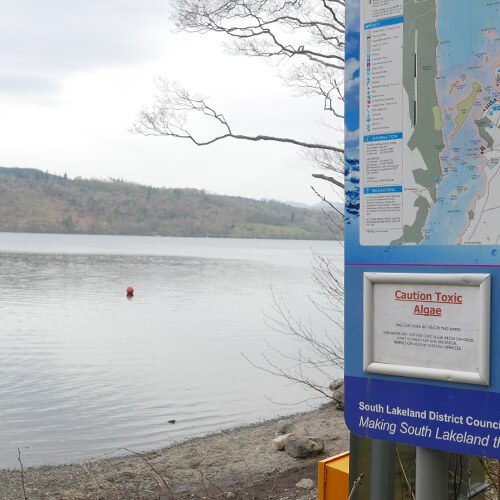
Why Windermere?
“Windermere is a significant body of water that experiences year-long recreational, therapeutic, and competitive OWS practice,” writes Taylor, on his project website. “However, this freshwater site is also embedded within a highly contested ecology of leisure, tourism, residence, cultural heritage, and conservation, whilst engrained in broader, often inequitable, motivations towards health and wellbeing.”
“Plus, Windermere is under growing local and global environmental pressures, including increasing water temperatures, extreme weather conditions, algal blooms, active sewage discharge, agricultural and urban runoff, invasive aquatic vegetation (often transferred from unwashed equipment), and even plastic pollution. Therefore, these concerns generate further questions regarding the different bodily, socio-cultural, political, and environmental factors shaping these understandings of ‘healthy’ OWS practice.”
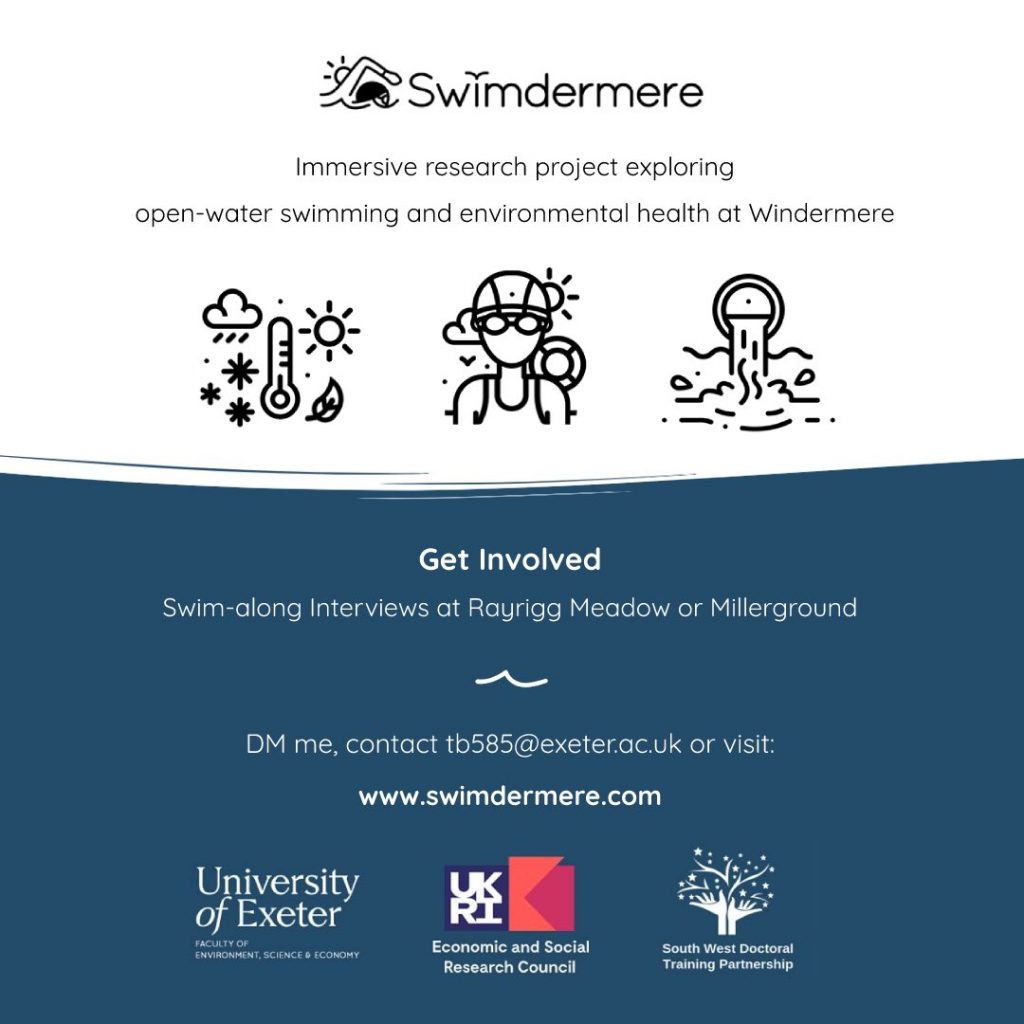
Find out how to get involved on the Swindermere website; or follow Taylor’s progress on Instagram.







